Hillary Clinton proposes $275 billion in new infrastructure spending

Hillary Rodham Clinton called for hundreds of billions in new federal spending on infrastructure on Sunday, kicking off what her campaign says will be a month-long focus on job creation. Standing before a backdrop of union workers and students, the Democratic presidential frontrunner vowed to rebuild “ladders of opportunity” and give a greater number of Americans a “middle-class lifestyle.” “Investing infrastructure makes our economy more productive and competitive,” she said at the launch of “Hard Hats for Hillary,” a new effort by her campaign to mobilize union workers. “To build a strong economy for our future, we must start by building strong infrastructure today.” Clinton was joined by Boston Mayor Marty Walsh, who recently endorsed her campaign, and a number of labor unions backing her bid. “Get your sledgehammers ready because we have a glass ceiling to demolish,” Walsh told a cheering audience crowded into historic Faneuil Hall. The new infrastructure proposals make up the most expensive portion of Clinton’s economic agenda, which her campaign said would exceed the $350 billion she’s already proposed for a college affordability plan. Along with the $275 billion in infrastructure funds, she plans to call for new investments in manufacturing and research in the coming weeks. Her announcement comes as Clinton faces down challenges from Vermont Sen. Bernie Sanders and former Maryland Gov. Martin O’Malley, who’ve both stressed the need to increase direct federal spending. Sanders has proposed legislation that would provide more than $1 trillion in new infrastructure spending over the next five years, paid for by raising taxes on the wealthy and corporations. Clinton’s campaign said she would allocate $250 billion to direct investment by the federal government in crumbling roads, bridges, public transit and airports. An additional $25 billion would fund a national infrastructure bank, an idea unveiled by President Barack Obama in his first term that has been blocked repeatedly by congressional Republicans. The bank would support $225 billion in loans intended to spur private investment in struggling projects, adding a total of $500 billion in new infrastructure funds into the economy, her campaign estimates. Her campaign says their plans would create “good-paying, middle-class jobs,” citing a recent study that found wages for infrastructure workers at $38,810, several thousand dollars higher than the national median. The new federal spending would be paid for by closing corporate loopholes, according to her campaign, which did not detail which tax breaks would be targeted. The Republican National Committee accused Clinton of treating American tax dollars like “every day is black Friday.” “The real reason Hillary Clinton isn’t saying how she’ll pay for her trillion-dollar spending increase is because she knows it means raising taxes on the middle class,” said spokesman Michael Short. Clinton’s campaign says she would limit her tax increases to wealthy Americans. They argue that her chief Democratic rival, Sanders, would require middle-class Americans to pay higher taxes to fund his single-payer health care plan — a charge his campaign disputes. “I’m the only Democrat in this race pledged to raise your income, not your taxes,” Clinton said, in a subtle swipe at Sanders. Sanders’ campaign says that his single-payer health system would save taxpayers money in the long run because it would eliminate wasteful health spending. Republished with permission of the Associated Press.
Hillary Clinton’s invoking of 9/11 to defend donations draws ire
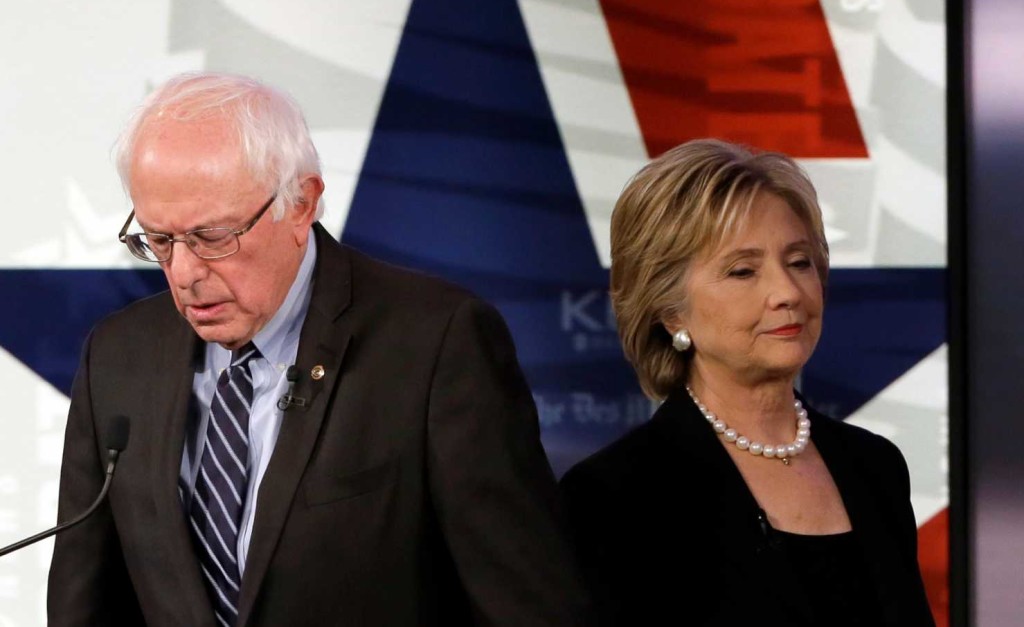
Hillary Rodham Clinton defended her campaign contributions from Wall Street by invoking her work to help the financial sector rebuild after the Sept. 11, 2001, attacks, raising eyebrows among her Democratic challengers and Republicans alike. During Saturday’s second Democratic debate, Clinton was put on the defensive by rival Vermont Sen. Bernie Sanders when he said Wall Street had been the major contributor to her campaigns. “Now maybe they’re dumb and they don’t know what they’re going to get, but I don’t think so,” he said. Clinton responded that she was representing New York in the Senate when downtown Manhattan was attacked and noted that she helped the city’s financial hub rebuild. “That was good for New York and it was good for the economy and it was a way to rebuke the terrorists who had attacked our country,” she said, her voice rising. Her response drew an incredulous response on social media sites like Twitter, and the debate’s moderators asked Clinton to respond to one Twitter user, who took issue with her mention of 9/11 to justify the contributions. “Well, I’m sorry that whoever tweeted that had that impression because I worked closely with New Yorkers after 9/11 for my entire first term to rebuild,” Clinton said. “I had a lot of folks give me donations from all kinds of backgrounds, say, ‘I don’t agree with you on everything. But I like what you do. I like how you stand up. I’m going to support you.’ And I think that is absolutely appropriate.” The exchange highlighted one of Sanders’ main critiques of Clinton: That she has maintained close ties to Wall Street executives during her political career and would be less forceful in policing the risky behavior of financial firms that Sanders says led to the economic downturn in 2008 and 2009. Both Sanders and ex-Maryland Gov. Martin O’Malley support reinstating the Glass-Steagall law which once separated commercial and investment banking but was repealed in 1999 under her husband, President Bill Clinton. The former secretary of state says repealing Glass-Steagall wouldn’t go far enough to curb risks pushed by a shadow banking system. When Clinton raised Wall Street donations along with 9/11, her Democratic rivals quickly bounced. In the post-debate “spin room,” former O’Malley told reporters, “I’ll let her answer that gaffe. I think it was one of the biggest ones of the night.” Mark Longabaugh, a top Sanders’ adviser, said, “Do I think it’s a legitimate defense? No. I don’t see how you can make those two pieces go together.” He called the exchanges over Wall Street the “pivotal moments of the debate.” Republicans said Clinton had shamefully hid behind the 9/11 attacks to deflect attention from her ties to her wealthiest donors. And they signaled that the response would likely find its way into advertising if Clinton becomes the Democratic nominee. “It’s an intersection between stupid and offensive, and I think that’s going to be a big problem as the campaign heads into the general election,” said Sean Spicer, the Republican National Committee’s chief strategist. Clinton campaign chairman John Podesta told reporters the Clinton’s “integrity was impugned and what she was saying was that she was proud to represent the state of New York, to help rebuild lower Manhattan.” “When people attack her and call her quote-unquote the ‘Senator from Wall Street,’ they ought to remember that she was instrumental in trying to rebuild an important part of the New York economy,” he said. Republished with permission of The Associated Press.
Bernie Sanders has most to prove as Democrats gather for 2nd debate

Vermont Sen. Bernie Sanders faces the biggest test yet of his insurgent presidential campaign on Saturday night, when he faces off with Democratic front-runner Hillary Rodham Clinton in the party’s second primary debate. His goal is clear: Reset a contest that increasingly looks like little more than a march to the nomination for Clinton. That effort will be complicated by fresh terrorist strikes that have captured the world’s attention. Despite Sanders’ focus on domestic issues, national security and foreign policy will play prominent roles in the debate, with the string of deadly attacks in Paris that killed more than 120 people front and center. All the candidates quickly denounced the attacks in statements on Friday night. Party officials said the forum will continue as planned. Foreign relations is an area where Clinton, a former secretary of state, is in the strongest position to talk about the attacks and the U.S. effort to dismantle the Islamic State group. But her tenure is tied to that of Obama, who’s struggled to contain the threat from Islamic militants in Syria and associated terror attacks across the globe. Clinton’s husband, former President Bill Clinton, accompanied her to Des Moines on Saturday but will not be in the hall for the debate, spokesman Angel Urena said. A spate of good news for Clinton since the party’s first debate a month ago has helped her rebuild a lead in the early voting states, an uptick that comes amid other signs the party is coalescing behind her. An Associated Press survey of superdelegates published Friday found that half of the Democratic insiders are publicly backing Clinton. Sanders may have inadvertently facilitated some of her progress in the first debate, when he seemed to dismiss the controversy over her use of a private email account and server by saying Americans are tired of hearing about her “damn emails.” Since then, he’s given her no more passes. Though careful never to mention Clinton by name, Sanders has drawn a series of contrasts with the former secretary of state on issues that include her backing of the war in Iraq, trade and the minimum wage. Sanders’ advisers say he plans to discuss the email issue only if the moderators of the debate in Des Moines, Iowa, bring it up. That could be a signal to organizers that he’s is open to the topic. “He’s definitely going to cut a harder contrast on core issues,” said Larry Cohen, a senior adviser to Sanders. “But it’s not going to be over personal style.” The problem for Sanders is that Clinton agrees with him on some of the core domestic issues of his campaign, having shifted to the left in recent weeks to oppose construction of the Keystone XL pipeline and the Trans-Pacific Partnership trade deal. “It’s really tough for him,” said Gina Glantz, manager of Bill Bradley‘s 2000 presidential campaign, which posed a primary challenge to then-Vice President Al Gore. “He’s in a difficult position where his current arguments aren’t enough to get beyond his core voter.” While Sanders aides bragged about their candidate’s lax preparation for the last debate, they shuttled him to his campaign headquarters in Burlington, Vermont, for mock sessions before this match-up. Clinton, too, has kept her schedule relatively clear over the last several days, leaving plenty of time for rehearsals. “They are absolutely prepared for the fact that Bernie’s going to come out swinging,” said Maria Cardona, a Democratic strategist who worked for Clinton’s failed 2008 White House campaign. “The question is how it’s going to happen.” Clinton supporters say their candidate will remain focused on laying out her vision for the future rather than striking back at Sanders. Her campaign has about $15.2 million in television advertising planned through mid-February, compared with a $3.2 million Sanders ad buy that ends next week, according to Kantar Media’s CMAG advertising tracker. The Service Employees International Union, an influential force in Democratic politics, is expected to issue their endorsement on Tuesday, according to people knowledgeable about the union’s process. Clinton has been backed by more than 72 percent of members in all their internal polling, including the most recent survey conducted a few weeks ago. Her team is hoping to notch another win after a series of strong moments since the first debate. Clinton has benefited from Vice President Joe Biden‘s decision to forgo a run and well-received testimony before a Republican-led congressional panel investigating the deadly 2012 attacks in Benghazi, Libya. They’re also trying not to alienate the Sanders backers whose support they’ll need should Clinton win the nomination. “As a front-runner your job is to do no harm,” said Cardona. “She’s going to want to be a comfortable home for the Bernie supporters toward the end of this process.” Sanders, too, may face tougher attacks. Former Maryland Gov. Martin O’Malley, who’s struggled to break 5 percent in national preference polls, has questioned Sanders’ commitment to the Democratic Party and President Barack Obama, still a popular figure among Democrats. A more aggressive tone would mark a shift for a race that has so far been notable for its civility. Democrats have spent months boasting about the substantive tone of their contest, attempting to set-up a favorable early contrast with the often carnival-like insults of the crowded Republican primary. Their bragging may come to an end after Saturday night. Republished with permission of the Associated Press.
Party insiders give Hillary Clinton early, commanding delegate edge

Hillary Rodham Clinton has locked up public support from half of the Democratic insiders who cast ballots at the party’s national convention, giving her a commanding advantage over her rivals for the party’s presidential nomination. Clinton’s margin over Vermont Sen. Bernie Sanders and former Maryland Gov. Martin O’Malley is striking. Not only is it big, but it comes more than two months before primary voters head to the polls — an early point in the race for so many of the people known as superdelegates to publicly back a candidate. “She has the experience necessary not only to lead this country, she has experience politically that I think will help her through a tough campaign,” said Unzell Kelley, a county commissioner from Alabama. “I think she’s learned from her previous campaign,” he said. “She’s learned what to do, what to say, what not to say — which just adds to her electability.” The Associated Press contacted all 712 superdelegates in the past two weeks, and heard back from more than 80 percent. They were asked which candidate they plan to support at the convention next summer. The results: Clinton: 359. Sanders: 8. O’Malley: 2. Uncommitted: 210. The 712 superdelegates make up about 30 percent of the 2,382 delegates needed to clinch the Democratic nomination. That means that more than two months before voting starts, Clinton already has 15 percent of the delegates she needs. That sizable lead reflects Clinton’s advantage among the Democratic Party establishment, an edge that has helped the 2016 front-runner build a massive campaign organization, hire top staff and win coveted local endorsements. Superdelegates are convention delegates who can support the candidate of their choice, regardless of who voters choose in the primaries and caucuses. They are members of Congress and other elected officials, party leaders and members of the Democratic National Committee. Clinton is leading most preference polls in the race for the Democratic nomination, most by a wide margin. Sanders has made some inroads in New Hampshire, which holds the first presidential primary, and continues to attract huge crowds with his populist message about income inequality. But Sanders has only recently started saying he’s a Democrat after a decades-long career in politics as an independent. While he’s met with and usually voted with Democrats in the Senate, he calls himself a democratic socialist. “We recognize Secretary Clinton has enormous support based on many years working with and on behalf of many party leaders in the Democratic Party,” said Tad Devine, a senior adviser to the Sanders campaign. “But Sen. Sanders will prove to be the strongest candidate, with his ability to coalesce and bring young people to the polls the way that Barack Obama did.” “The best way to win support from superdelegates is to win support from voters,” added Devine, a longtime expert on the Democrats’ nominating process. The Clinton campaign has been working for months to secure endorsements from superdelegates, part of a strategy to avoid repeating the mistakes that cost her the Democratic nomination eight years ago. In 2008, Clinton hinged her campaign on an early knockout blow on Super Tuesday, while Obama’s staff had devised a strategy to accumulate delegates well into the spring. This time around, Clinton has hired Obama’s top delegate strategist from 2008, a lawyer named Jeff Berman, an expert on the party’s arcane rules for nominating a candidate for president. Clinton’s increased focus on winning delegates has paid off, putting her way ahead of where she was at this time eight years ago. In December 2007, Clinton had public endorsements from 169 superdelegates, according to an AP survey. At the time, Obama had 63 and a handful of other candidates had commitments as well from the smaller fraction of superdelegates willing to commit to a candidate. “Our campaign is working hard to earn the support of every caucus goer, primary voter and grass roots and grasstop leaders,” said Clinton campaign spokesman Jesse Ferguson. “Since day one we have not taken this nomination for granted and that will not change.” Some superdelegates supporting Clinton said they don’t think Sanders is electable, especially because of his embrace of socialism. But few openly criticized Sanders and a handful endorsed him. “I’ve heard him talk about many subjects and I can’t say there is anything I disagree with,” said Chad Nodland, a DNC member from North Dakota who is backing Sanders. However, Nodland added, if Clinton is the party’s nominee, “I will knock on doors for her. There are just more issues I agree with Bernie.” Some superdelegates said they were unwilling to publicly commit to candidates before voters have a say, out of concern that they will be seen as undemocratic. A few said they have concerns about Clinton, who has been dogged about her use of a private email account and server while serving as secretary of state. “If it boils down to anything I’m not sure about the trust factor,” said Danica Oparnica, a DNC member from Arizona. “She has been known to tell some outright lies and I can’t tolerate that.” Still others said they were won over by Clinton’s 11 hours of testimony before a GOP-led committee investigating the attack on a U.S. consulate in Benghazi, Libya. Clinton’s testimony won widespread praise as House Republicans struggled to trip her up. “I don’t think that there’s any candidate right now, Democrat or Republican, that could actually face up to that and come out with people shaking their heads and saying, ‘That is one bright, intelligent person,’” said California Democratic Rep. Tony Cardenas. Republished with permission of The Associated Press.
Hillary Clinton files paperwork to be on New Hampshire ballot
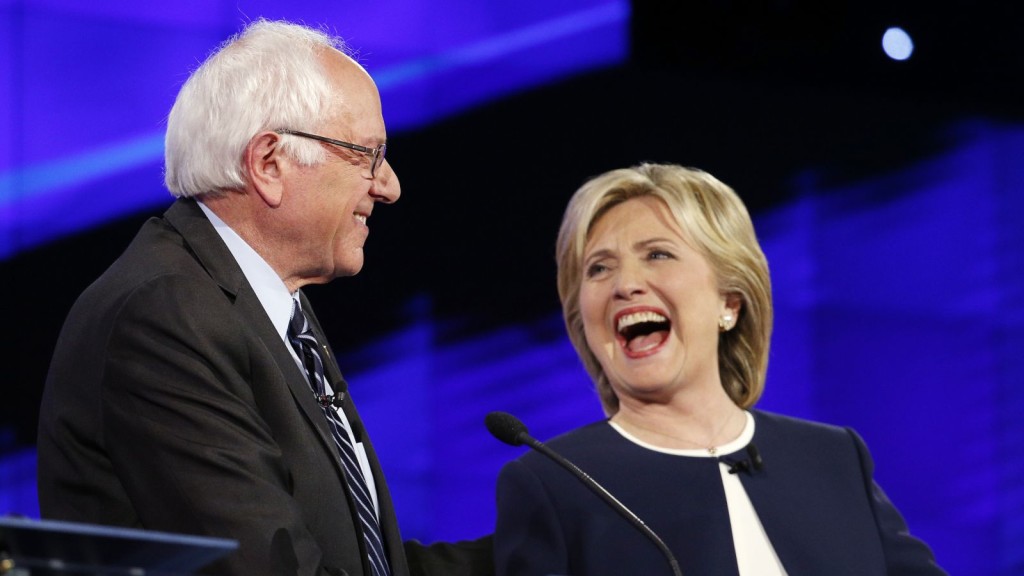
Hillary Rodham Clinton signed the paperwork Monday that establishes her as a Democratic presidential candidate in New Hampshire’s first-in-the-nation primary. And as such, she’s highlighting her work for the party and on behalf of Democratic candidates — an implicit swipe at rival Bernie Sanders, a self-proclaimed democratic socialist who has drawn support from the party’s liberal wing. “Well, I’m a Democrat. I just signed papers saying I’m a Democrat. He has to speak for himself,” Clinton told reporters just after filing her candidacy. “I will put forth my position. “If there’s a contrast, there’s a contrast. I’m just proud to be a Democrat and I’m proud that I’ve work so hard for the Democratic party.” Her comments came during a busy week of campaigning in New Hampshire and a pair of debates — among Republicans Tuesday night and between Clinton, Sanders and former Maryland Gov. Martin O’Malley on Saturday night. Clinton was the last of the three main Democratic candidates to file. Sanders and former Maryland Gov. Martin O’Malley filed paperwork at the secretary of state’s office last week. Candidates have until Nov. 20 to file for the primary, which is expected to be held Feb. 9. Republished with permission of The Associated Press.
Joe Biden opted out on 2016 Dem race because he ‘couldn’t win’
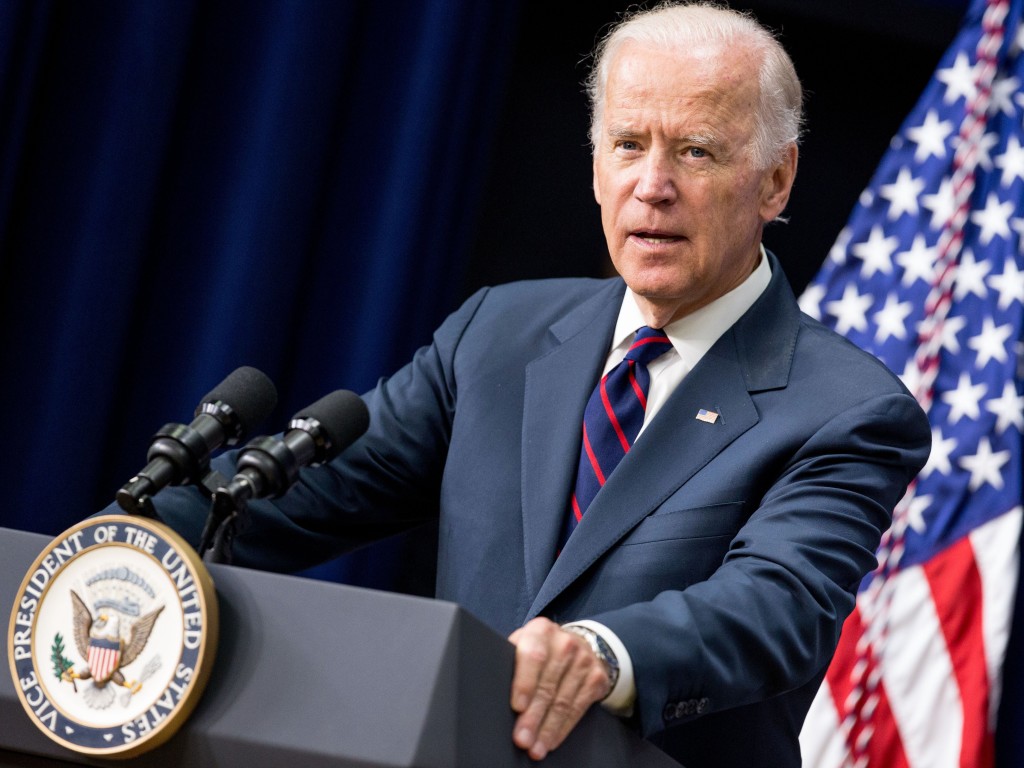
Vice President Joe Biden says he decided against running for president because he “couldn’t win,” not because he would have had too little time to get a campaign up and running. “I’ll be very blunt. If I thought we could’ve put together the campaign … that our supporters deserve and our contributors deserved, … I would have done it,” he said in an interview aired Sunday on CBS’s “60 Minutes.” In the wide-ranging interview, in which Biden took questions for a time joined by his wife, Jill, the vice president also said he would not have gotten into the race just to stop Democratic front-runner Hillary Rodham Clinton. “I’ve said from the beginning, ‘Look, I like Hillary. Hillary and I get along together,” he said. “The only reason to run is because … I still think I could do a better job than anybody else could do.” He used the interview to play down suggestions his announcement not to run, made at the White House Wednesday with President Barack Obama standing at his side, included a jab at Clinton. At the White House event, Biden lamented partisan bickering in Washington politics and said, “I don’t think we should look at Republicans as our enemies.” Clinton had made a statement to that effect during the Democratic presidential debate earlier this month. “That wasn’t directed at Hillary,” Biden told “60 Minutes.” “That was a reference to Washington, all of Washington,” he said. The 72-year-old Biden also sought in the interview to dispel recurrent rumors that his late son Beau, who died earlier this year at age 46 of brain cancer, had made a last-minute plea to his father to run for president. Biden said there was no such “Hollywood moment … Nothing like that ever, ever happened,” he said. “Beau all along thought that I should run and I could win.” “But there was not what was sort of made out as kind of this Hollywood-esque thing that, at the last minute, Beau grabbed my hand and said, ‘Dad, you’ve got to run,’ like win one for the Gipper,” Biden said. The vice president did say he wants to continue to have a voice in party affairs and will speak up whenever he wishes. He has not endorsed a candidate for the Democratic presidential nomination. “I will make no bones about that,” he said. “I don’t want the party walking away from what Barack and I did.” Clinton, Sen. Bernie Sanders and former Maryland Gov. Martin O’Malley are still in the race. Republished with permission of the Associated Press.
Lincoln Chafee ends his presidential campaign
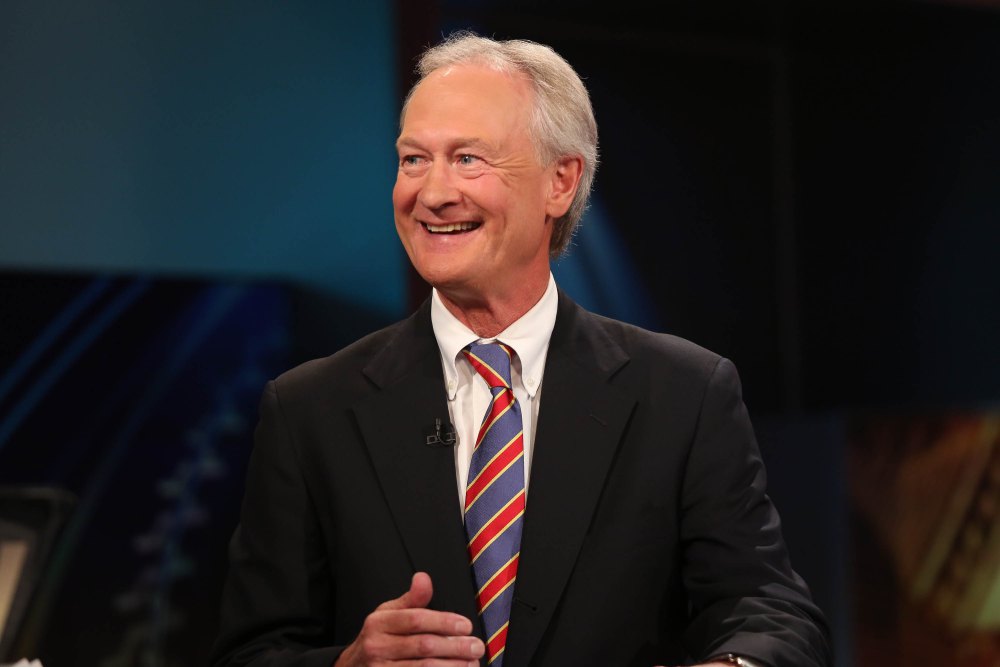
Former Rhode Island Gov. Lincoln Chafee announced Friday he would end his quixotic Democratic presidential campaign after failing to gain traction against Hillary Rodham Clinton and Bernie Sanders. “After much thought I have decided to end my campaign for president today,” Chafee said at a women’s forum held by the Democratic National Committee. “But I would like to take this opportunity one last time to advocate for a chance be given to peace.” Chafee delivered a widely panned debate performance earlier this month and has struggled to raise money and generate enthusiasm in a field that has been dominated by Clinton, a former secretary of state, and Sanders, the Vermont independent senator. Chafee’s departure comes days after Vice President Joe Biden declined to join the field and former Virginia Sen. Jim Webb announced he was leaving the Democratic campaign and would consider an independent bid. It leaves Clinton, Sanders and former Maryland Gov. Martin O’Malley as the three main contenders for the nomination. All three are appearing Saturday at a major Iowa Democratic fundraising dinner in Des Moines, an event that helped fuel President Barack Obama‘s rise in the fall of 2007. The former Rhode Island senator surprised many when he formed a presidential exploratory committee last spring and raised eyebrows when he called for the U.S. to switch to the metric system during a formal campaign kickoff in Virginia last June. His poll numbers were so low that comedian Conan O’Brien came up with a song for Chafee’s longshot bid and encouraged viewers to boost his poll numbers from 0 percent to 1 percent because “it seems like the nice thing to do.” Often driving from his Rhode Island home, Chafee visited the first primary state of New Hampshire several times but failed to draw large crowds. In the first Democratic debate, Chafee referred to himself as a “block of granite” when it came to issues and said he was most proud of his judgment, particularly his vote against the Iraq war. He frequently said U.S. foreign policy should promote peace but his performance was widely panned, prompting questions about whether he would continue his campaign. Chafee raised just $11,000 in the most recent fundraising quarter. Most of his money has come from more than $360,000 that he has loaned his campaign. During his past campaigns, he relied on an old New England family fortune amassed over generations. Chafee told reporters he decided to end his campaign last weekend after Clinton’s strong performance in the debate. Biden’s announcement and Clinton’s testimony before the House Select Committee on Benghazi reaffirmed his thinking, Chafee said, adding he no longer saw her use of a private email system as a disqualifying issue. “Obviously it’s a good week for Secretary Clinton,” he said. “I’m moving on now. It’s time to move on and support the party any way I can.” The presidential bid represented an unusual twist for the unconventional 62-year-old lawmaker and the son of late Sen. John Chafee. In the Senate, the younger Chafee stood out as a liberal Republican in an increasingly conservative party. He was the lone Republican in 2002 to vote against going to war in Iraq, a moment that he tried to make a cornerstone of his campaign. He was elected governor in 2010 as an independent and twice backed Obama’s White House campaigns. He joined the Democrats in 2013 and used his presidential campaign to urge the U.S. to help reinvigorate the United Nations as a way to promote peace and stability. DNC Chair Debbie Wasserman Schultz, a Florida congresswoman, called Chafee a “class act” and recalled his decision to join the Democratic party. “Let’s remember that that was a big deal,” Wasserman Schultz told the audience. “Because when he joined our party, he made clear that his former party had left him.” Republished with permission of the Associated Press.
Email Insights: Alabama GOP Chairman Terry Lathan responds to the Democratic debate
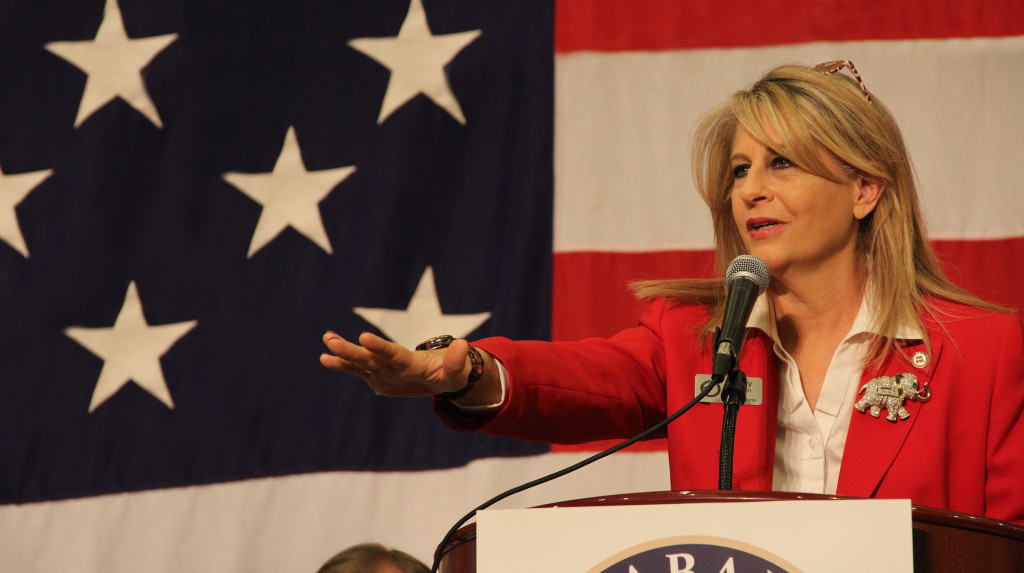
Tuesday night the the Democratic presidential hopeful took the stage for their first nationally televised debate. Hosted by CNN in Las Vegas, the debate — featuring Lincoln Chafee, Hillary Clinton, Martin O’Malley, Bernie Sanders and Jim Webb — gave the candidates an opportunity to stand out, share their opinions on major issues, and with any luck increase their poll numbers. Wednesday morning, Alabama Republican Party chairman Terry Lathan sent the following email in response to the debate: “I was pleased to see the liberal and progressive Democrat candidates on display yesterday evening for all of America to witness. The candidates’ mindsets, thoughts and words were divisive and harmful to our nation. They did not speak on the economy or the flat-lined job growth that citizens desperately need addressed. Contrasted with the Republican presidential candidates, many of whom have released or are soon to release their economic growth plans, the Democrats are stuck in the ditch of no ideas, are playing the blame game and have a bankrupt vision for our nation. “Barack Obama said he would fundamentally transform America, and he did just that. Unfortunately, he has taken us down a road that is destructive and harmful. The Democrats displayed in last evening’s debate that they are walking along that same path. “We look forward to November 2016, when we will take our nation back from the lines of thoughtless and reckless actions that have been thrust upon us.”
Scorecard: How the Democrats fared in their 1st debate
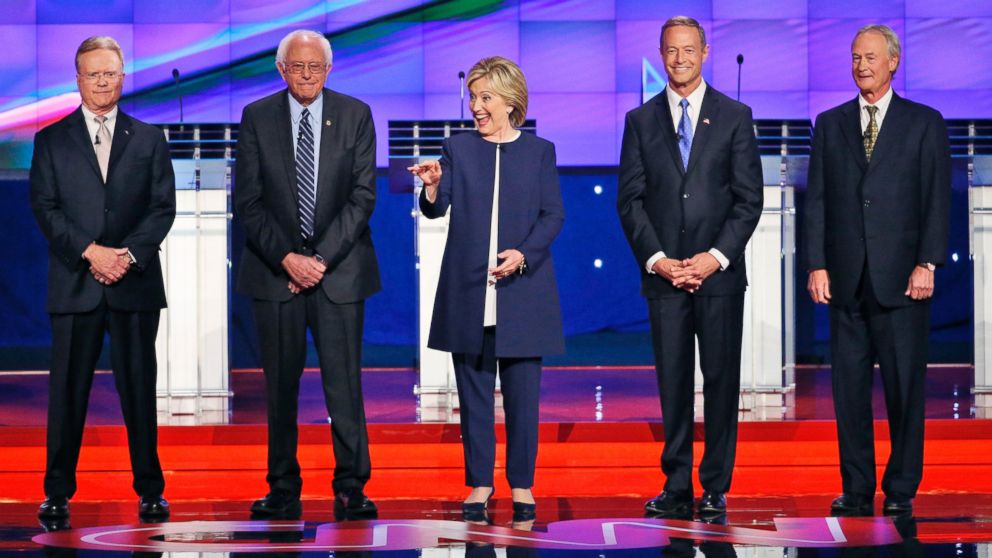
Here’s a look at how the five Democratic presidential candidates performed in Tuesday’s debate at the Wynn Las Vegas resort-casino. — HILLARY RODHAM CLINTON Standing center stage, Clinton went on offense against Bernie Sanders over his views of the economy and record on gun control. She had to defend her shifting views of the Keystone XL oil pipeline and the Trans-Pacific Partnership. But questions about her private email server ended with a shared laugh with Sanders. — BERNIE SANDERS Sanders had to answer for his record on gun control, perhaps the one policy area where he’s at odds with liberals in the party. He faced questions about his electability and his approach to the economy. But he gave Clinton a big reprieve when he groused that the “American people are sick and tired of hearing about your damn emails.” — MARTIN O’MALLEY O’Malley introduced himself as a can-do former governor, pointing to his work to raise the minimum wage, support gay marriage and address gun control in Maryland. He faced questions about whether his policies as Baltimore’s mayor had sown the seeds of the city’s riots last spring. And when he told Clinton a no-fly zone in Syria would be a mistake, she said she was “very pleased” when he endorsed her presidential campaign in 2008. — JIM WEBB The former Virginia senator tried to tap into the anti-establishment fervor in the country, speaking out against the role of money in politics and Wall Street’s influence. He said his military experience and work in the Pentagon would make him the most qualified commander-in-chief. He complained that he didn’t get the same amount of time to talk as his rivals. — LINCOLN CHAFEE The former Rhode Island governor and senator called himself a “block of granite” when it came to issues and said he was most proud of his judgment, particularly in his vote against the Iraq war. But he clocked in at slightly more than 9 minutes, giving him the least amount of airtime on the debate stage, and was largely an afterthought during the evening. Republished with permission of the Associated Press.
Hillary Clinton, Bernie Sanders, Martin O’Malley to headline Southern forum
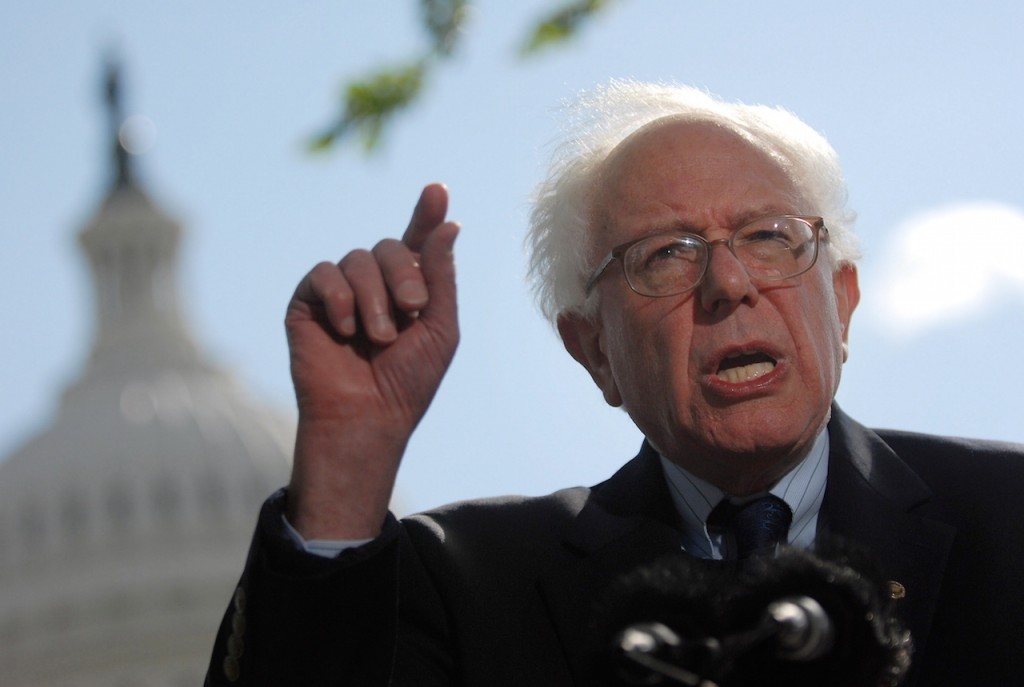
Three Democratic presidential candidates are scheduled to attend a Nov. 6 forum in South Carolina. The nationally televised event at Winthrop University isn’t a debate. Instead, MSNBC host Rachel Maddow will conduct separate conversations with former Secretary of State Hillary Rodham Clinton, former Maryland Gov. Martin O’Malley and Vermont Sen. Bernie Sanders. The forum is sponsored by 12 state Democratic parties stretching from Virginia to Texas, along with the Democratic National Committee and South Carolina Congressman James Clyburn. The South will play a key role in choosing a nominee. South Carolina’s primary is Feb. 27. Many other Southern states follow in March. Party officials said all Democratic hopefuls were invited to Winthrop. They say Vice President Joe Biden would receive an invitation if he joins the race before Nov. 6. Republished with permission of the Associated Press.
CNN: Joe Biden can be a game-day decision for debate
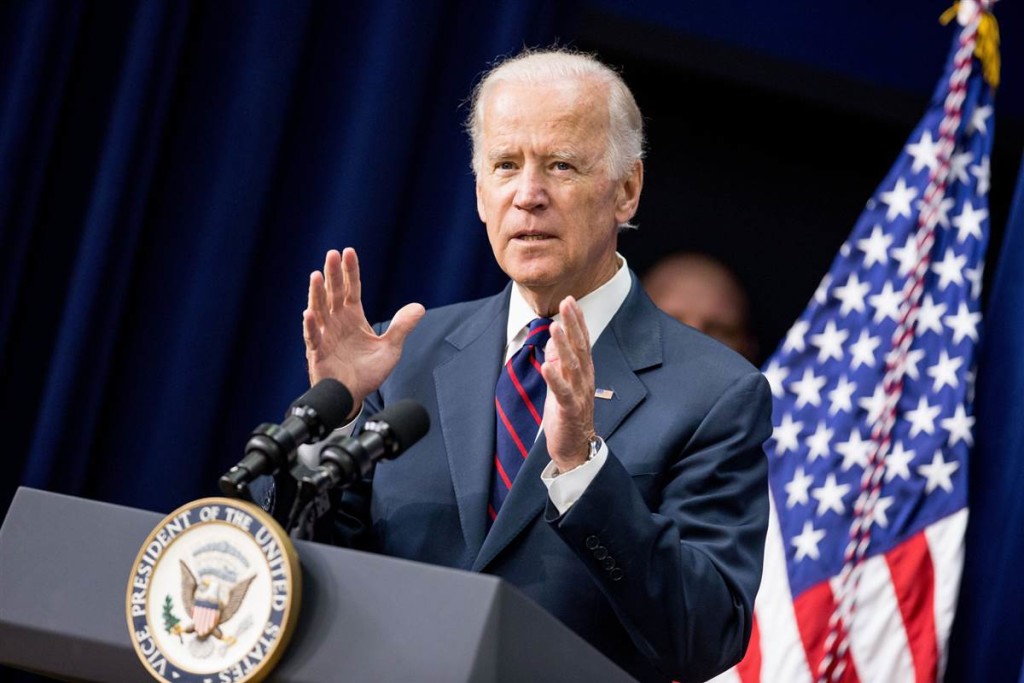
CNN says it will allow Vice President Joe Biden to participate in the first Democratic presidential primary debate even if he decides that day to be a candidate. The network released its criteria for the Oct. 13 debate on Monday. Since Biden has achieved an average of one percent support in three polls — even though he isn’t a declared candidate — CNN said he needs only to file the necessary paperwork or say he will that day to be in the debate. Hillary Rodham Clinton, Bernie Sanders, Lincoln Chafee, Martin O’Malley and Jim Webb have already been invited. Anderson Cooper will moderate the Las Vegas debate. Dana Bash, Don Lemon and CNN en Espanol anchor Juan Carlos Lopez also will question the candidates. Biden aides have cited the CNN debate as one of the major factors in the vice president’s timing in making a decision. They have described it as an important opportunity, if he runs, to establish him as an alternative to Clinton. Republished with permission of the Associated Press.
Bernie Sanders pushes for more debates
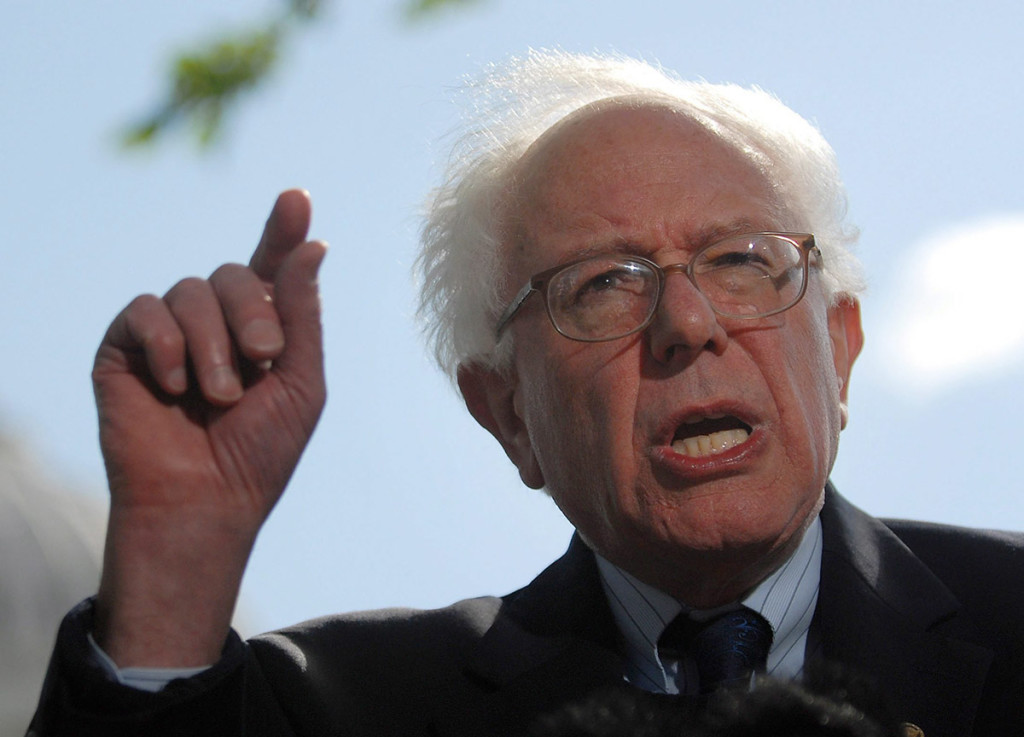
Here’s the latest news on the 2016 race for president. (All times local): 12:35 p.m. There’s no debate about it for Bernie Sanders. Any chance there will be more than the six debates already sanctioned by the Democratic National Committee? “I have the feeling that there will be,” the Vermont senator tells CBS’ “Face the Nation.” Supporters of Sanders and former Maryland Gov. Martin O’Malley are pressing for more. Hillary Rodham Clinton‘s campaign has said the front-runner is open to more debates. Sanders says debates promote “a serious decision in our democracy.” 10:35 a.m. Donald Trump is “a master brander,” someone with “a lot of pizazz and zip.” That’s not from a news release from the Republican presidential candidate’s campaign. The description comes from a seasoned Democratic politician — former President Bill Clinton. Can Trump win the GOP nomination? “I think so” is Clinton’s assessment, though he also adds on CNN, “I mean, how do I know?” The two-term president says he’s hasn’t run for office in a long time and doesn’t “have a good feel for this.” Clinton says he’ll “do what I can” to help one candidate in the 2016 race — his wife, Hillary Rodham Clinton. 10 a.m. From cyberspace to space itself, Republican presidential candidate Ben Carson says “strength is really the defense against aggressiveness by others” from cyberspace to space itself. Carson tells ABC’s “This Week” that he favors offensive cyberattacks against anyone who attacks the United States — “they need to understand that there will be consequences.” The retired neurosurgeon also talks about the need to harden the country’s power grid and have “several layers of alternate energy.” And then there’s space — the final frontier. Carson says the U.S. must “get back into space” because in the future, “he who controls space will control the Earth.” 9:45 a.m. Jeb Bush says he can win the New Hampshire primary. In an interview Sunday on Fox News, the former Florida governor says the polls now showing Donald Trump in the lead don’t mean much five months before New Hampshire Republicans vote. He says the polls count people who may not cast a ballot. Currently, billionaire businessman Donald Trump is the front-runner in New Hampshire and national polls in the race for the GOP nomination. Bush says: “I’m confident I can win New Hampshire for sure.” Republished with permission of the Associated Press.


